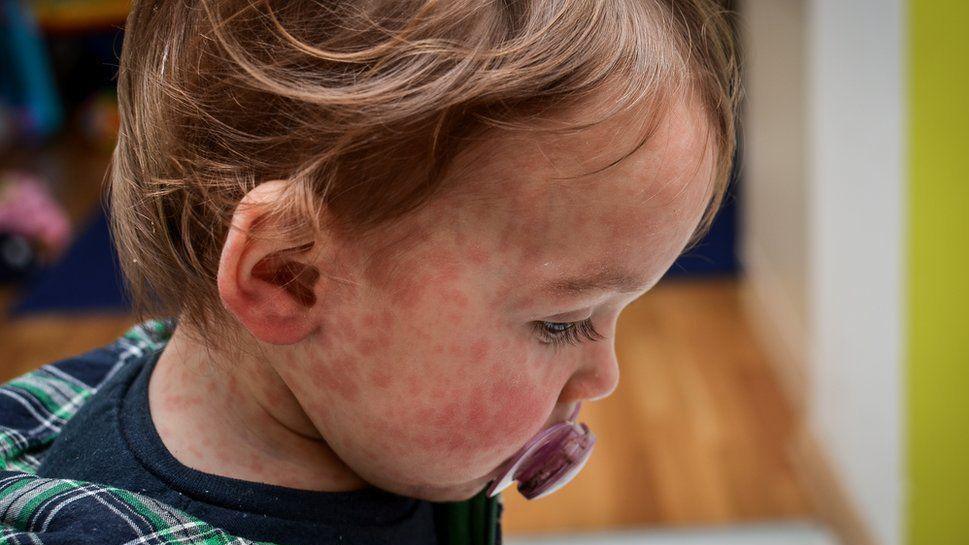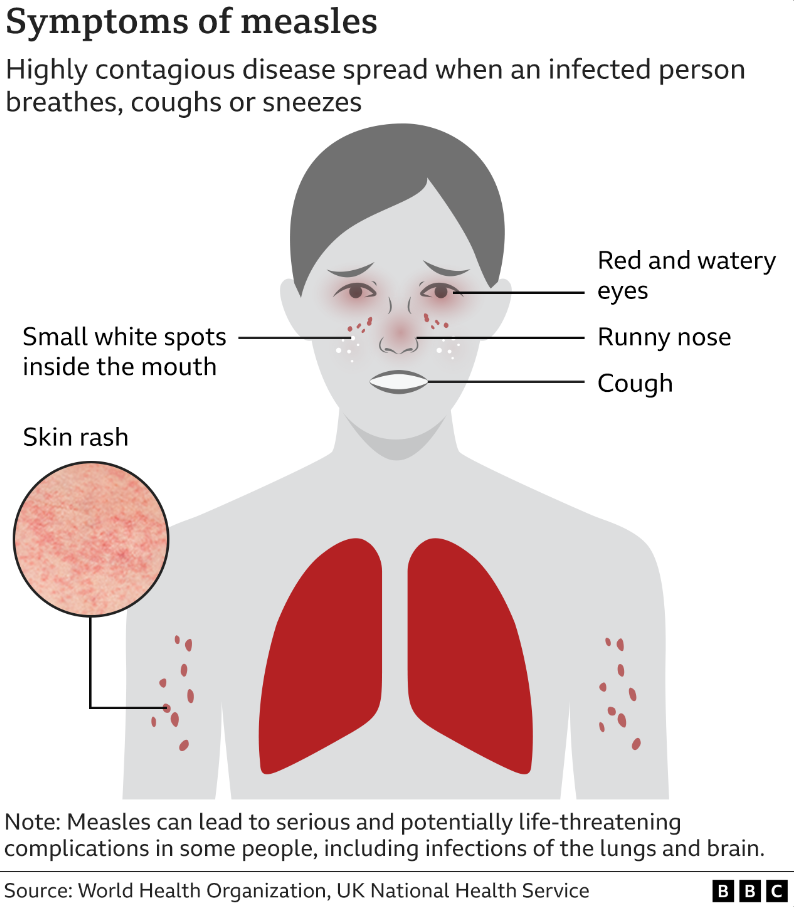Children who visited hospital traced over measles

Measles usually starts with cold-like symptoms, followed by a rash a few days later
- Published
Parents of some children who visited a south Wales hospital are being contacted by health officials after two measles cases were confirmed in the area.
Public Health Wales said it was contacting parents of children who attended the children's emergency assessment unit (CEAU) at The Grange University Hospital in Cwmbran, Torfaen, "at specific times" over the Easter weekend.
Parents who do not receive a text message do not need to take any action, the health body said.
Measles, external is a highly contagious disease which is spread by coughs and sneezes.
It can be prevented through the measles, mumps and rubella (MMR) vaccination, external.
Beverley Griggs, public health consultant for Public Health Wales, said the two confirmed measles cases were "in the Gwent area".
"As part of our investigations, we have identified a number of patients who attended the CEAU at Grange Hospital at specific times between 30 March and 2 April," she said.
“The parents of these patients will receive a text message with a link with further information about what they should look out for in their children, and what they should do if they have concerns."
'Highly contagious'
Ms Griggs said contacts who had not received the MMR vaccine were at "increased risk" of measles and would therefore be asked to stay away from school, nursery of childcare settings for two weeks.
"This is routine public health action and is intended to prevent further transmission of the infection," she said.
“If you do not receive a text message from us, then please be reassured that you do not need to take any action or be concerned.
“However, we are reminding parents that measles is highly contagious and can have serious consequences, particularly for young children. It is therefore important that anyone who was exposed to the infection is vigilant for any symptoms in their children.”

Common symptoms of measles include a high fever, sore and red eyes, coughing, and sneezing.
Small white spots may also appear inside the mouth.
A blotchy red or brown rash usually appears after a few days, typically on the face and behind the ears, before spreading to the rest of the body.
Measles normally clears up within seven to 10 days. However, complications can include pneumonia, meningitis, blindness and seizures.
Babies and young children, pregnant women and those with a weakened immune system are at increased risk.